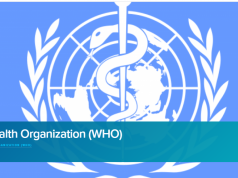The data from the consultation revealed that 92 suggestions came from foreign countries, including Canada and the United States, both of which have established regulations on vape sales. Anvisa’s Director-General, Antonio Barra Torres, has initiated the process of revising the current regulations. While Congresswoman Soraya Thronicke proposed bill 5008/2022, which triggered discussions in Congress. The bill aims to introduce restrictions such as prohibiting the production of products with candy or dessert flavours and packaging designed to appeal to minors.
Ipec’s 2023 data indicates that 6 million adult smokers in Brazil have tried vapes, with 2.2 million becoming regular users. This has indicated the need for the public consultation, which in turn has initiated social discussions about the need for regulations, the future of which is expected to be significnalty influenced by the process.
What is wrong with vape bans?
Renowned tobacco harm reduction expert and former Director of the UK’s leading anti-smoking organization, Clive Bates, was amongst the thousands who submitted to the consultation. He said that banning the safer alternatives would be a significant policy error that could protect the cigarette trade, promote smoking, foster criminal networks, and result in more harm than good. He elaborated further:
- Scientific Evidence: The proposal ignores the scientific consensus that vaping products are far less harmful than traditional cigarettes. Banning safer alternatives without justification based on current knowledge is unjust.
- Public Health Benefit: Prohibiting vaping obstructs a significant public health opportunity, as vaping has been shown to replace smoking. With around one in eight adults still smoking in Brazil, the potential for harm reduction is substantial.
- Nicotine as a Recreational Drug: Nicotine is acknowledged as a legal recreational drug, and its demand is likely to persist. Banning safer forms of nicotine delivery, such as vaping, is seen as absurd and unethical, especially when the demand for nicotine could be met by regulated and safer products.
- Unintended Consequences of Prohibition: Historical evidence and common sense suggest that prohibition can lead to unintended consequences, including increased smoking rates, the growth of illicit trade and criminal networks, and the emergence of workarounds to meet demand.
- Young People’s Use: The proposal fails to distinguish between infrequent and experimental use of vaping products by young people, which poses minimal public health risk, and more intensive use by those at risk of becoming smokers, for whom vaping can be a beneficial alternative.
- Regulatory Responsibility: The regulatory approach should involve risk-proportionate regulation, applying more stringent measures to the most harmful products (cigarettes) and focusing on consumer protection, responsible supply, age restrictions, and marketing controls for safer alternatives.
Similar scenario in Argentina
On a similar note, the Argentinean vapers’ association Asovape Argentina and the World Vapers’ Alliance (WVA) have recently joined forces, writing an open letter to Argentina’s President Javier Milei. In the letter they urged the repeal of ANMAT’s (National Administration of Medicines, Food and Medical Technology) administrative provision 3226/2011. Enacted on May 6, 2011, the measure bans the importation, distribution, marketing, advertising, and promotion of e-cigarettes.
In the letter, the groups highlighted that numerous studies conducted since the ban was set in place, have demonstrated the significantly lower risk profile and effectiveness for smoking cessation of these devices. They argued that the ban infringes upon the individual freedom of Argentine adults and their rights to the free development of personality, information, and health.
Argentina has a smoking rate of 24.5%, one of the highest in the world, with approximately 225,000 Argentines falling ill and nearly 60,000 dying from smoking-related diseases annually. The signatories emphasize that the ban exacerbates the smoking problem and speads misconceptions about vaping, hence hindering millions of smokers from switching to a safer alternative.








